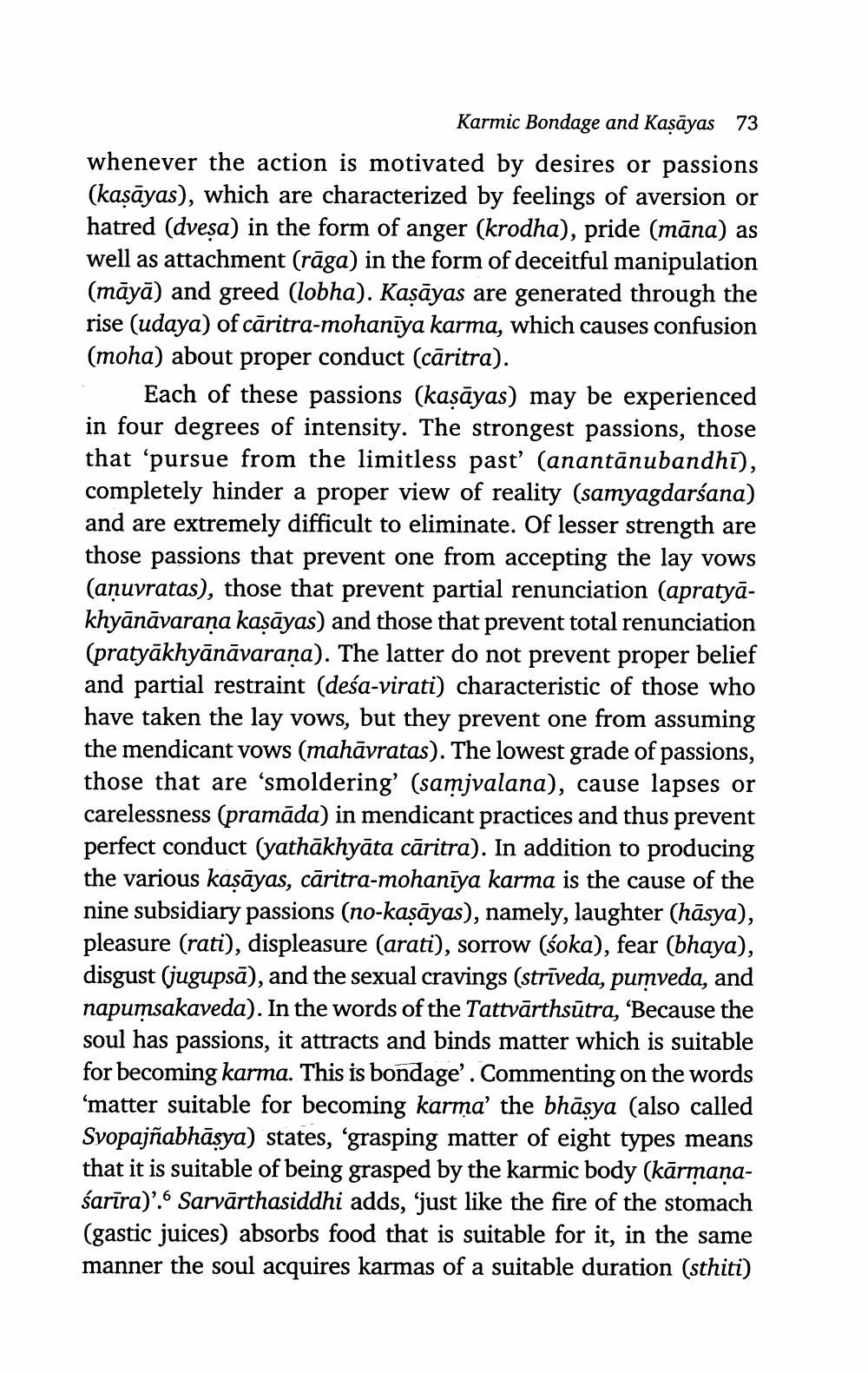________________
Karmic Bondage and Kaṣāyas 73 whenever the action is motivated by desires or passions (kaṣāyas), which are characterized by feelings of aversion or hatred (dvesa) in the form of anger (krodha), pride (māna) as well as attachment (rāga) in the form of deceitful manipulation (māyā) and greed (lobha). Kaṣāyas are generated through the rise (udaya) of caritra-mohanīya karma, which causes confusion (moha) about proper conduct (cāritra).
Each of these passions (kaṣāyas) may be experienced in four degrees of intensity. The strongest passions, those that 'pursue from the limitless past' (anantānubandhī), completely hinder a proper view of reality (samyagdarśana) and are extremely difficult to eliminate. Of lesser strength are those passions that prevent one from accepting the lay vows (aṇuvratas), those that prevent partial renunciation (apratyākhyānāvaraṇa kaṣāyas) and those that prevent total renunciation (pratyākhyānāvaraṇa). The latter do not prevent proper belief and partial restraint (deśa-virati) characteristic of those who have taken the lay vows, but they prevent one from assuming the mendicant vows (mahāvratas). The lowest grade of passions, those that are 'smoldering' (samjvalana), cause lapses or carelessness (pramāda) in mendicant practices and thus prevent perfect conduct (yathākhyāta cāritra). In addition to producing the various kaṣāyas, caritra-mohaniya karma is the cause of the nine subsidiary passions (no-kaṣāyas), namely, laughter (hāsya), pleasure (rati), displeasure (arati), sorrow (śoka), fear (bhaya), disgust (jugupsā), and the sexual cravings (strīveda, pumveda, and napumsakaveda). In the words of the Tattvärthsūtra, 'Because the soul has passions, it attracts and binds matter which is suitable for becoming karma. This is bondage'. Commenting on the words 'matter suitable for becoming karma' the bhāṣya (also called Svopajñabhāṣya) states, 'grasping matter of eight types means that it is suitable of being grasped by the karmic body (kārmanṇaśarīra)'. Sarvārthasiddhi adds, 'just like the fire of the stomach (gastic juices) absorbs food that is suitable for it, in the same manner the soul acquires karmas of a suitable duration (sthiti)




